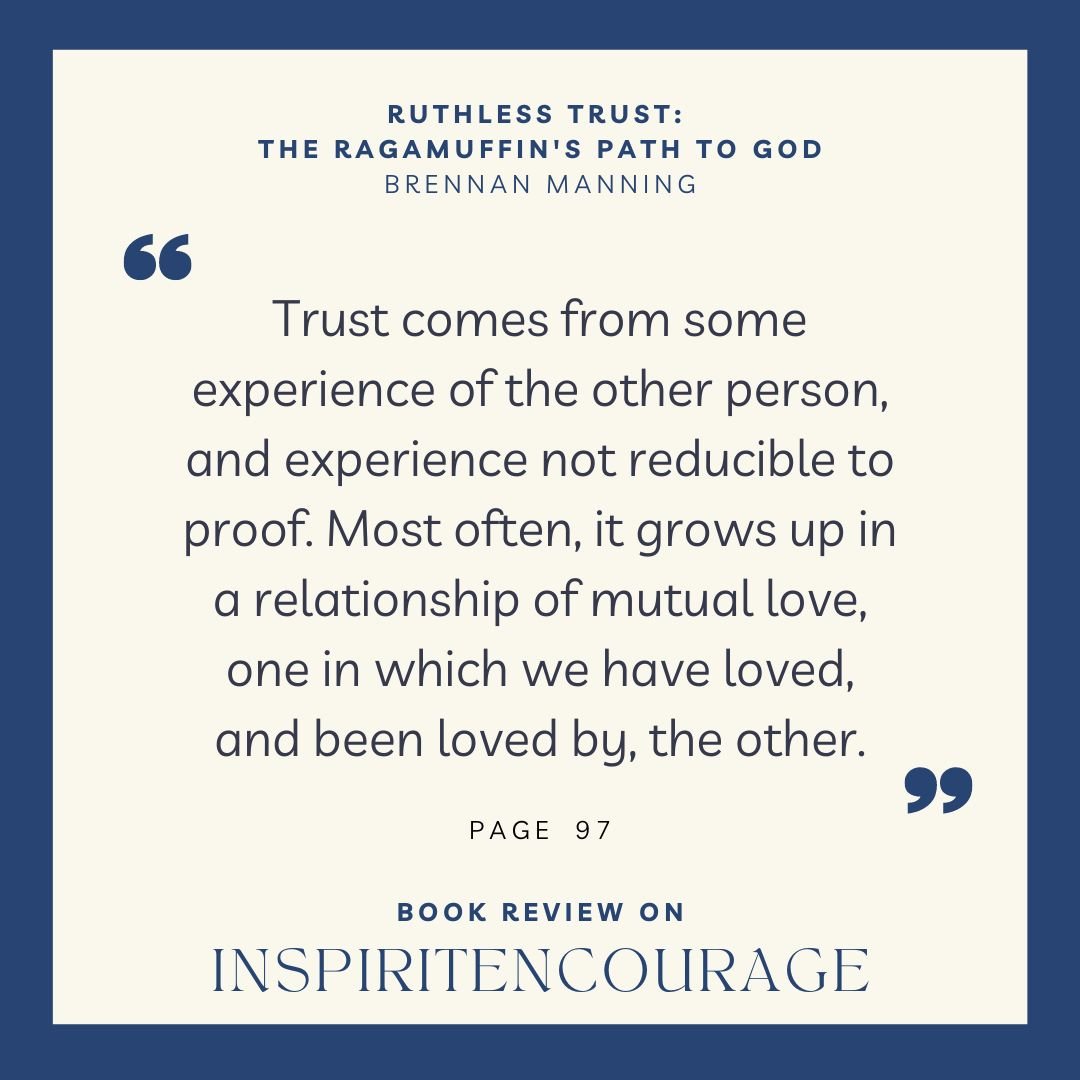Book Review - Ruthless Trust: The Ragamuffin’s Path to God by Brennan Manning
In Ruthless Trust, Brennan Manning undertakes to believe in all that he has studied of God through the years. He tells of the glory of God, the love of God. He tells of how we must know God and not the idea that we have of him. Manning presents the idea that living in trust means that one lives a life of gratitude toward God, seeking and seeing God’s glory, and understanding that God is both other-worldly and within us.
Manning Seeks Trust
In order to live this life of trust described by Manning, he offers numerous stories and examples. He talks of artists, mystics, and clowns as those who see the things of God through a different lens. And if we stop to view it through their lens, we just might see something new of God, something real and true. Manning shares personal stories as well as those of his friends and acquaintances, theologians and philosophers, to include a great many of us, in our sinful, hopeful, painful, seeking lives.
Manning presents trust as the intersection of faith in Jesus and hope in His promises; trust comes from faith and hope. Faith doesn’t come merely from head knowledge, but form the deep experience of knowing someone, knowing Jesus who reveals God.
Generating Trust
Manning proposes that we cannot will ourselves to trust, or self-generate it. In this I think that I diverge in opinion. I think we can make choices that reinforce trust. Just as we continue to give the acquaintance who is always late yet another chance, we extend trust to that person that is perhaps not yet solidified. It solidifies in time and through choice or decisions we make. I think we can do the same with God. We step out ‘where feet may fail’, expecting God to take over. We move from timidity in trust to knowing the sure foundation of trust by doing so. Brennan may agree with me to a certain extent since he also talks of trust developing over time and through experience and vulnerability.
Cracked Pot Story
Many of us will have heard the story of the cracked pot, used to draw water daily that finds he is watering the flowers along the path. Manning proposes new interpretations to the traditional moral of the story: God uses broken pots/people. He points out the comparison the pot makes, and that the pot was perfectly equipped to do that which was expected of it. This more thought out moral to the story is appreciated.
3/5 stars for Ruthless Trust
Much of what Manning writes is about putting the focus of our lives and thoughts on God. This will bring us to greater trust in him, and better, happier lives for it. That is hard to argue with. Unfortunately, we have yet another theologian here who writes an entire chapter about evil, pain, and suffering, yet never offering more solace than the glory and love of God. He says Jesus will look for scars and not honors and awards when we arrive for judgement day. We are left with no better understanding of how these things happen.
While the stories were appreciated, the topics enthusiastically presented and all well relatable, the book falls short in helping the reader understand trusting God any better. The thorough discussion of God’s glory left me wondering if there was more originally written about the relation of glory to power or God’s will or some such, instead it is the idea of God’s glory which shall inspire us to trust. It falls short for me, as does the chapter on evil. Manning takes a good first step by focusing on God and not ourselves when seeking to trust, and even in looking to the here/now rather than the past or future. These are good first steps, but they do take the reader to God who is faithful, God who is loving, and into his warm embrace.
